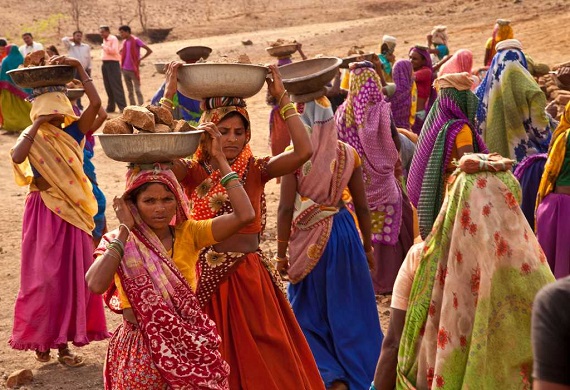
UP Rural Development Department Intends to Increase Women's Engagement in MGNREGS
By: WE Staff | Friday, 22 October 2021
In the Mahatama Gandhi National Rural Employment Guarantee Scheme, Uttar Pradesh took a huge effort to improve its ranking as one of the worst-performing states in terms of women's participation (MGNREGS). According to data, the UP rural development department has trained 18,000 Mahila Mates and deployed 3,010 on job sites in order to increase women's engagement in MGNREGS.
Mahila Mates are women assistants that help manage and supervise MGNREGS jobs and jobs sites.
During the Covid-19 pandemic in 2019-20, Uttar Pradesh used the MGNREGA to employ 1.11 crore people, however the workforce was predominantly male.
Yogesh Kumar, additional commissioner of MGNREGS, Uttar Pradesh said, “The state generated only 32.52% of women person-days of the 30.55 crore person-days of work generated in the year. At the 28th position, UP was the lowest in the country with only Jammu and Kashmir and Lakshadweep ranking lower on the women’s employment index under the MGNREGS. But then we decided to bring in a change. Mahila Mates was one of the top ideas for this”.
The rural development department said in March that Mahila Mates will be assigned to jobs sites. The appointment procedure was finished by June. A total of 18,000 Mahila Mates have been trained so far. 3,010 of them have started work on their respective job sites.
He underlines, “we believe that the Mahila Mate concept will go a long way in increasing women’s participation in the rural employment scheme. First of all, these 18,000 Mahila Mates are getting direct employment in the scheme. Secondly, once the women in villages know that job sites are being managed by women, it will inspire women in villages to opt for work under the scheme because job sites headed by women will change the social structure of a job site and address the hesitancy among prospective women workers. We had observed that men-dominated worksites do make women shy from participating in work even if they wanted to”.
The Mahila Mates were chosen from existing women SHGs (self-help groups) in the panchayats to ensure the appointment go as smoothly as possible.
With 91.41%, 87.04%, and 84.88% women person-days respectively, Kerala, Tamil Nadu and Puducherry were the top-ranking states offering women jobs under MGNREGS last year.
UP saw a stunning 87% increase in person-days created in 2019-20 compared to the previous year, due to an emphasis on employment development under MGNREGS during these pandemic times. In the last five years, however, women's proportion has stayed steady.
Me. Kumar said, “Socio-cultural set-up and physical intensive works are inhibiting factors behind the low participation. Women do not like to work at male-dominated worksites and on physically gruelling jobs. So, we have decided to introduce all-women worksites and women-specific works, such as plantation, gardening, nutrition gardens, nurseries or organic cultivations.”
All of the Mahila Mates who were chosen were instructed in how to conduct their jobs, including create a work plan, make muster rolls, measuring of work done, record attendance, update the work demand and encourage women to work. Women Mates will also be responsible for providing amenities such as drinking water and a shed for workers on job sites. Depending upon what PWD (public works department) salary circle their hamlet belongs within, they will receive 290 to 370 dollars each workday.
Horticulture, floriculture, vegetable cultivation, animal husbandry, and fishing will also be promoted under the MGNREGS and the rural livelihood mission because these activities are less physically demanding and appeal to women.


.jpg)



